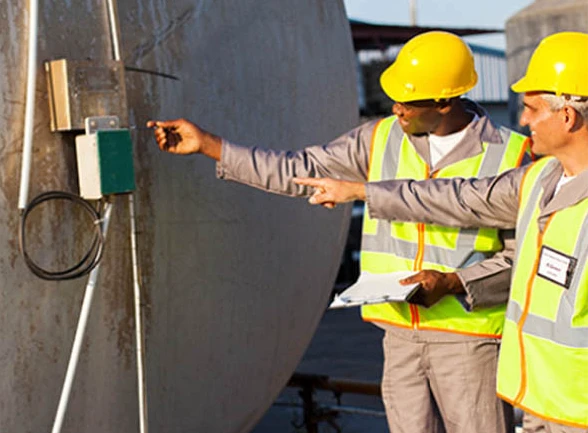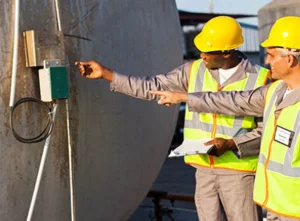The Companies Doing the Work That Keeps Storage Tanks Safe

In large commercial and industrial environments, storage tanks hold fuels, chemicals, wastewater, and other high-demand materials that support daily operations. The safety and efficiency of these tanks depend on constant oversight, which is why tank inspection companies play such a crucial role. These specialized teams ensure that tanks remain structurally sound, compliant with regulations, and capable of supporting high-volume industrial activity.
Facilities cannot rely solely on in-house staff for complex inspection work. Tanks must be evaluated using advanced tools, precise testing methods, and industry-specific standards that only trained inspectors can provide. The work these companies perform becomes the foundation for all maintenance, repairs, and long-term operational decisions.
What Makes Tank Inspection Companies Essential
Inspection companies bring expertise that general maintenance providers cannot match. They understand tank geometry, material behavior, environmental impact, and mechanical stress patterns. Their job is not only to identify immediate risks but also to predict long-term structural changes.
Their value comes from several capabilities:
- Advanced diagnostic tools that detect early deterioration
- Knowledge of tank design across multiple industries
- Compliance expertise that aligns inspections with regulations
- Trained personnel who understand confined-space safety
- Detailed reporting that guides future maintenance decisions
This technical depth is the reason industrial operators rely on professional tank inspection companies rather than managing inspections internally.
How These Companies Approach Complex Tank Evaluations
Inspecting an industrial tank requires more than checking its exterior. Professional teams evaluate both the inside and outside using specialized equipment that captures the tank’s full condition. Their evaluations reveal structural weaknesses, coating failures, corrosion development, and pressure-related distortion.
During a typical inspection, companies assess:
- Exterior surfaces for rust, cracks, and seam failures
- Internal wall condition using ultrasonic thickness testing
- Integrity of welds and joints exposed to high stress
- Amount of internal sludge or sediment buildup
- Venting systems, fittings, and safety components
By identifying these issues early, tank inspection companies help prevent failures that could disrupt operations.
Why Professional Inspections Are Required for Compliance
Industrial tanks operate under strict environmental and safety regulations. Failing to meet these standards can lead to fines, shutdowns, or legal action. Inspectors ensure that every tank meets the required benchmarks for safe operation, proper containment, and environmental protection.
Compliance-driven tasks inspection companies perform include:
- Verifying tank integrity for hazardous material storage
- Providing documentation for federal, state, and local regulations
- Confirming that tanks meet industry standards for pressure and containment
- Documenting structural weaknesses before they become liabilities
- Preparing tanks for regulatory audits and environmental reviews
Without certified inspection reports, facilities cannot demonstrate compliance to regulators.
How Inspection Companies Help Prevent Large-Scale Failures
Even minor flaws inside a tank can escalate into major problems. Inspection teams identify these issues while they are still small, helping facilities take action before risks intensify.
Inspections help prevent failures such as:
- Leaks caused by thinning tank walls
- Structural collapse from pressure imbalances
- Contamination of product due to internal corrosion
- Equipment damage from inconsistent flow or debris
- Environmental harm caused by uncontained hazardous materials
By working with tank inspection companies, facilities avoid emergency repairs and costly downtime.
The Tools and Technologies These Companies Use
Modern inspection companies rely on advanced technology to gain accurate insights into tank condition. These tools allow inspectors to evaluate internal structures without invasive procedures or tank disassembly.
Key tools frequently used include:
- Ultrasonic thickness gauges that measure steel degradation
- Magnetic particle testing for detecting microcracks
- Thermal imaging cameras for identifying temperature irregularities
- Video inspection systems for internal visualization
- Coating analyzers that detect breakdown in protective layers
These technologies give tank inspection companies the ability to diagnose problems with precision.
Why Facilities Benefit from Long-Term Partnerships With Inspectors
Working with the same inspection company over time allows facilities to build a complete maintenance history for each tank. Inspectors become familiar with the tank’s behavior, age, and stress patterns, making it easier to foresee issues.
Long-term partnerships provide advantages such as:
- Consistent monitoring of structural changes
- Predictive maintenance planning based on previous reports
- Faster response times during urgent situations
- More accurate budgeting for repairs or upgrades
- Improved operational stability
With ongoing collaboration, tank inspection companies become strategic partners rather than transactional service providers.
How Inspection Reports Support Maintenance and Repair Decisions
Inspection companies don’t just identify issues—they deliver detailed reports that guide engineers, repair teams, and facility managers. These reports include measurements, photos, recommended repairs, and timelines for corrective action.
Inspection reports help facilities decide:
- When to schedule tank cleaning
- Whether to rebuild internal coatings
- Which areas require welding or structural reinforcement
- When a tank is nearing end-of-life and needs replacement
- How to prioritize repairs across multiple tanks
The quality of decision-making improves significantly when supported by professional inspection documentation.
Why Inspections Support Safer Work Environments
Industrial tanks store materials that can be dangerous if leaks, pressure failures, or contamination events occur. Regular inspections reduce the possibility of hazardous incidents, protecting workers across the facility.
Inspection companies help create safer workplaces by:
- Ensuring tanks meet pressure and containment standards
- Identifying corrosion that could lead to structural failure
- Detecting vapor leaks near worker access points
- Reducing the chance of fires or chemical reactions
- Confirming that safety features remain fully operational
A facility that partners with tank inspection companies is far less likely to experience safety-related shutdowns or accidents.
The Role Inspection Companies Play in Long-Term Operational Success
Storage tanks are vital to production, fuel management, waste processing, and chemical handling. Their reliability determines how smoothly a facility operates day to day. With the support of professional inspectors, commercial operations maintain safe storage, predictable performance, and regulatory readiness.
Through detailed evaluations, reporting, and technical guidance, tank inspection companies help facilities preserve their infrastructure and avoid the costly consequences of unmonitored tank deterioration. Their work ensures long-term operational stability, production efficiency, and environmental responsibility.





